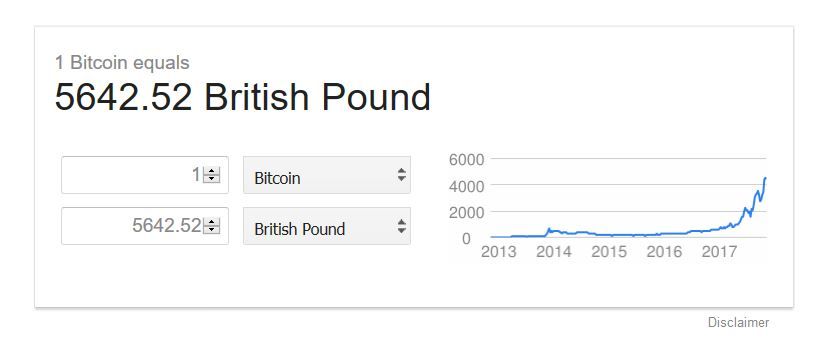Posted by Michael-w on 15/10/2017 05:45:32:
Posted by Phil Whitley on 14/10/2017 14:50:34:
Creating money from nothing……………………..banks have been doing it ever since the gold standard was scrapped!
I wouldn't say exactly nothing, the coins and notes have to be paid for, a time when it really becomes created from nothing would be when there's no actual currency involved, this is why governments are always in debt, precisely because the money doesn't cost nothing and somebody has to pay for that.
Just like gold was discussed, the supply of physical money is limited and may be a reason why they haven't already scrapped it besides it's convenience. If money becomes truly virtual, and thereby anyone could create it, then it's worthless, unless the bank could guarantee that nobody (including themselves) would tamper with it.
An interesting question to ask is 'what exactly is money?' At bottom, I suggest it's just a promise. The physical or virtual form of 'money' doesn't matter much, what's essential is that the promise remains trustworthy. Quite a lot of that trust depends on promises to deliver in the future, not on wealth that already exists.
A complication is that we live in a world where much of what we want and are prepared to pay for doesn't have significant physical value. Haircuts, entertainment, funerals, medical services, banking, information, repairs, education, insurance, design, advice, defence, training, science, traffic lights, law, labour, skills, and many others. The cost of 'services' is fundamentally no different from the cost of physical items: everything is only worth what someone is prepared to pay for them. And the 'payment' is usually just another promise.
Gold has been used as a token of exchange because it's rarity and stability makes it difficult to devalue the promise it represents. But, if an large supply of gold were suddenly discovered at the North Pole, then the value of gold would crash. Exactly this problem has occurred several times with Silver after new discoveries suddenly dropped the 'value'. The USA economy suffered boom/bust cycles after the Comstock Lode and other 19th century sources were opened up because the dollar was a silver coin, and the value of silver was unstable.
The realisation that wealth can grow is British. Rather than believing Wealth to be limited like a birthday cake that has to be shared out, it was understood that an economy could grow on the basis of promises to deliver in the future.
Generally the idea has worked out well. Unfortunately there are limits, and the foolish or greedy behaviour of governments, banks, corporates, and individuals has and will cause trouble. Making too many promises by printing excessive numbers of banknotes and gambling on the stock-market, causes individuals to lose confidence in those promises. Loss of confidence can happen quite suddenly, like when the sub-prime market collapsed, or it can be a slow process like the progressive devaluation of the pound relative to the dollar over the last 100 years, and more recently, it's sharp decline against the euro.
What frightens me to death is the possibility of a loss of confidence in the whole Western economy (which includes China, India, Brazil and Russia). Is the West really rich, or do we just think we are? It's probably best NOT to ask the question. An awful lot of promises have been made by an awful lot of people.
Dave
not done it yet.






